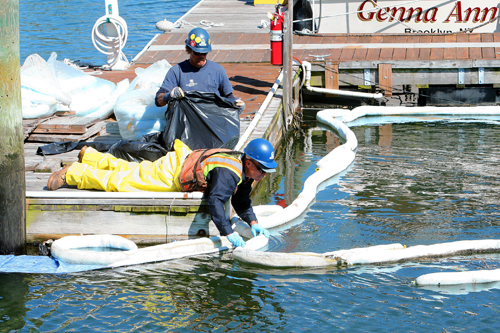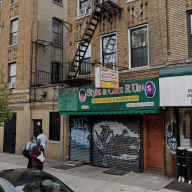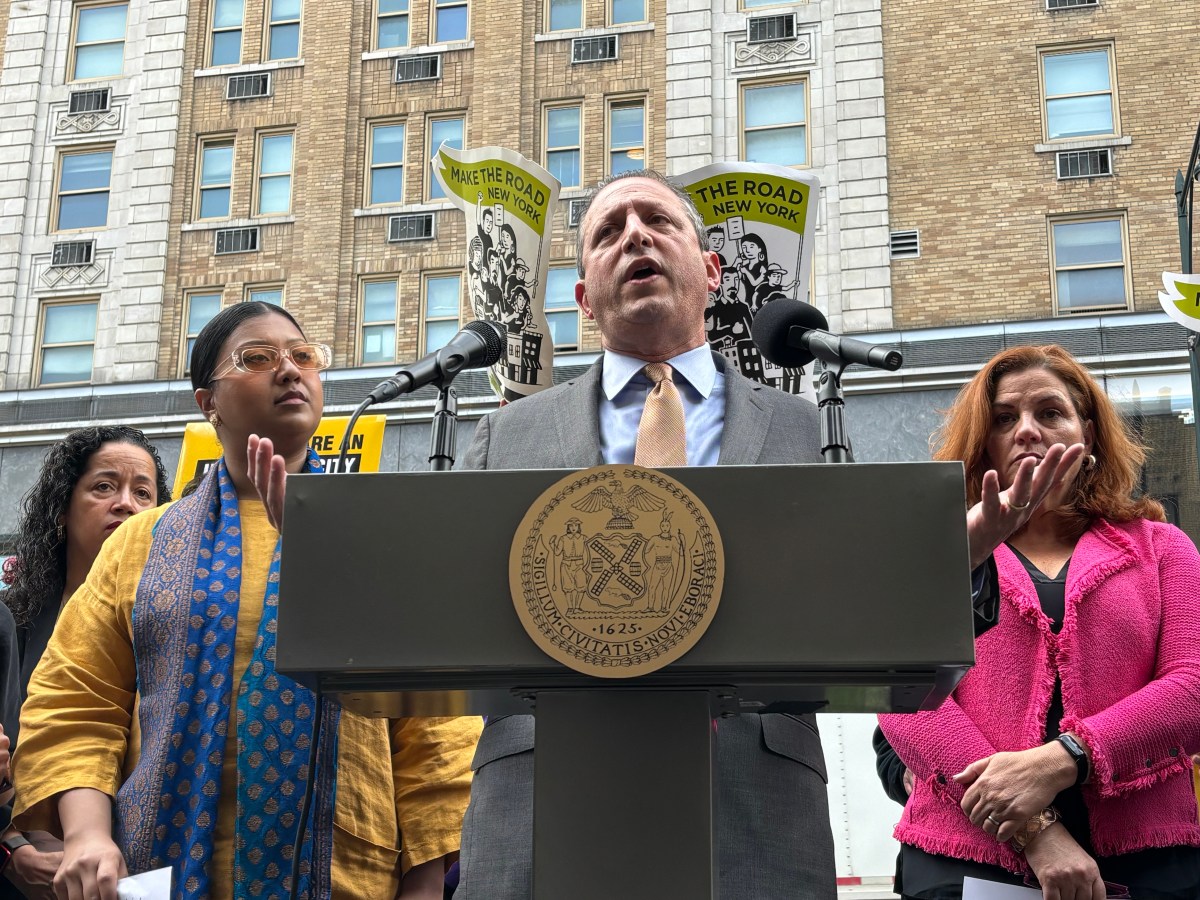The FDNY flushed a hazardous muck-like mixture of oil and gasoline into Paerdegat Basin last week, say state officials cleaning up the spill — a spill that’s teeming with cancer-causing carcinogens, investigators claim.
Both the state Department of Environmental Conservation and National Grid claim that the FDNY inadvertently sent the toxins — which included massive amounts of polychlorinated biphenyl, a cancer-causing pollutant — into the basin when firefighters turned on a fire hydrant to dissipate a natural gas odor reported on Paerdegat Avenue North. The water from the hydrant carried chemicals released from an unused gas main, the actual cause of the natural gas odor, to a nearby storm drain that empties out into the Bergen Beach waterway, investigators determined.
“Through this flushing, some of this liquid entered Paerdegat Basin,” a National Grid spokesman said in a statement.
FDNY officials say firefighters answering multiple calls about a strong gas odor in Canarsie and Bergen Beach weren’t told that somewhere between 800 and 1,400 gallons of the toxic crud had gushed out onto Paerdegat Avenue North as contractors poured cement into the unused pipe. The contractors at the scene even recommended that firefighters open up nearby fire hydrants, fire officials claim.
“The bottom line is the contractors screwed this up,” the FDNY spokesman said. “If the firefighters at the scene had the correct information, they possibly would have taken correct measures to dike the storm drain, so that if there was any type of release it wouldn’t have gone into the basin.”
Yet environmentalists say the FDNY made matters a lot worse.
“You can close off a street, but you can’t close off a waterway,” said New York Parks Advocate spokesman Geoffrey Croft, claiming that the clean-up crews putting in floating barricades known as hard booms in the basin to prevent the spread of the oil spill are botching the job. “I was out there with some fisherman and we saw the oil go right over the booms. By Friday, it was all throughout the bay.”
Samples taken from inside the unused National Grid pipe found hazardous levels of polychlorinated biphenyl, inciting fears that fish in the basin have been contaminated.
Officials say the cleanup effort — which includes removing the oil and scrubbing down 130 contaminated boats — should be finished by this weekend, but an investigation conducted by the U.S. Coast Guard has just gotten underway, according to Coast Guard spokeswoman Petty Officer Second Class Jetta Disco.
If the investigation determines that National Grid is at fault, the utility will have to pay for the cleanup, Disco said.
Residents are advised to avoid swimming in the basin until the cleanup is officially completed — but some civic leaders are questioning the assurances they’ve been given.
“You never take the word of the person who did it for how bad [it is],” Councilman Lew Fidler (D–Marine Park) told the Daily News. “I know it’s not on the level of the Exxon-Mobil spill, but if it’s in your neighborhood it sure feels like it.”
Reach reporter Colin MIxson at cmixson@cnglocal.com or by calling (718) 260-4514.


















